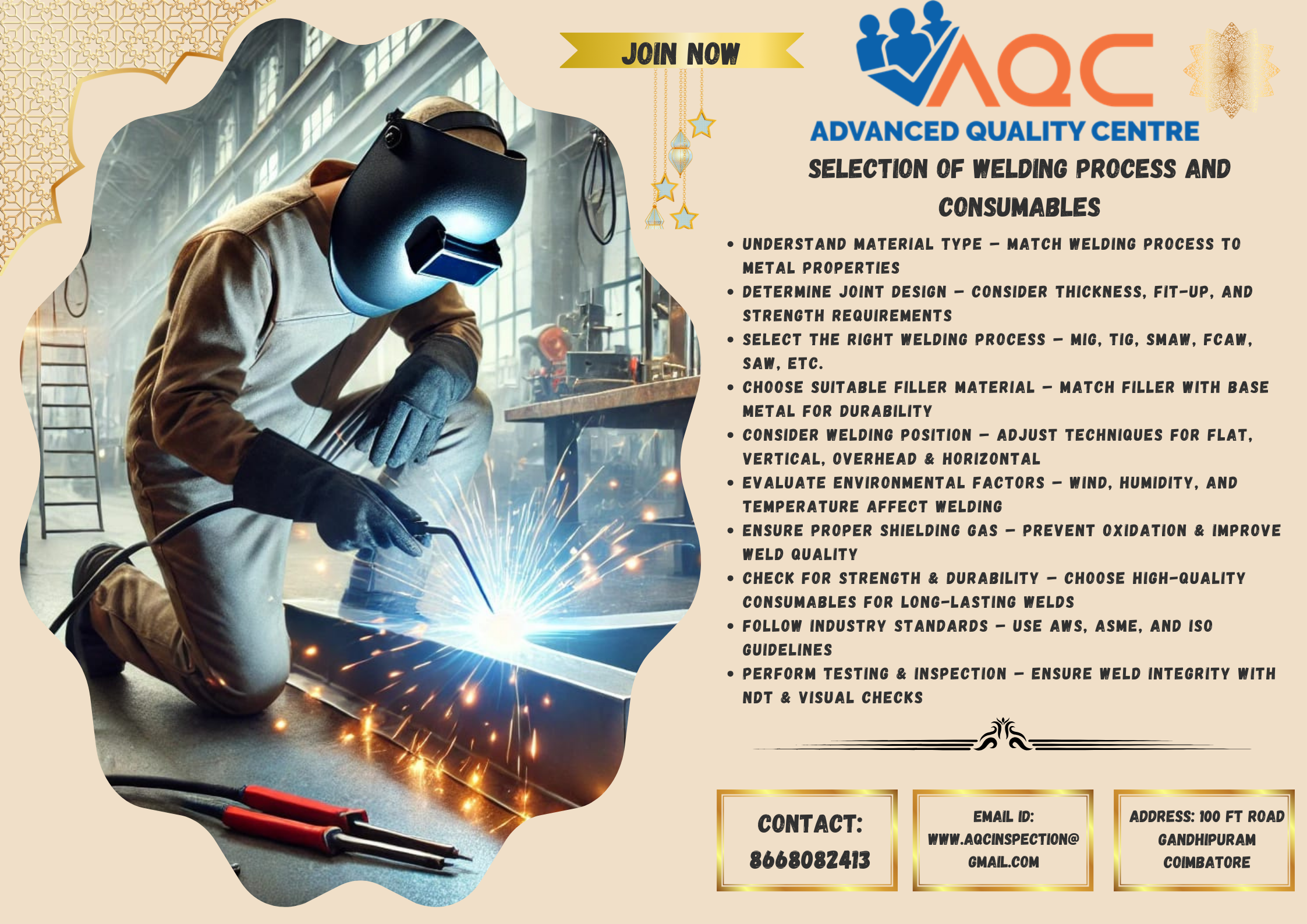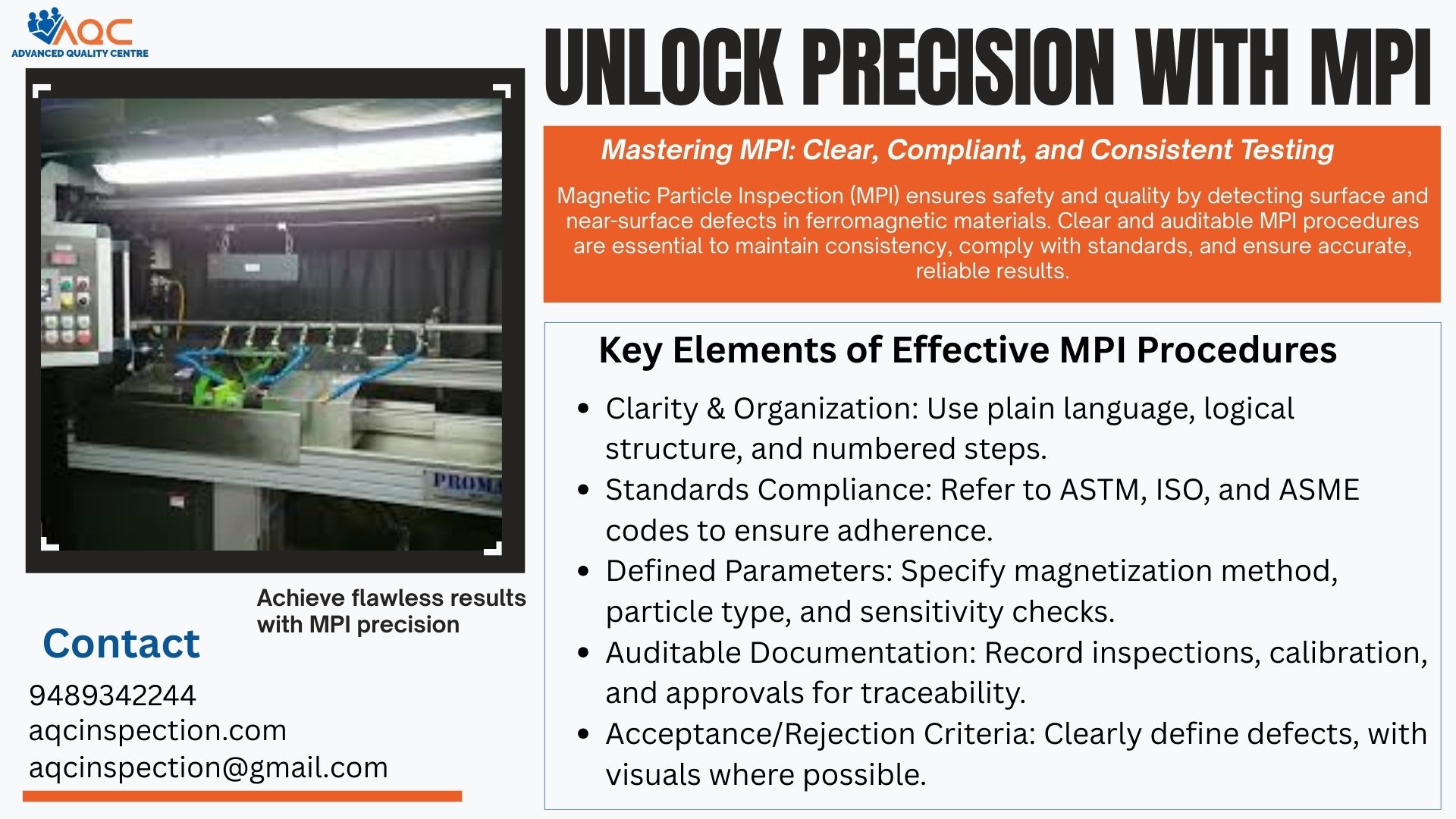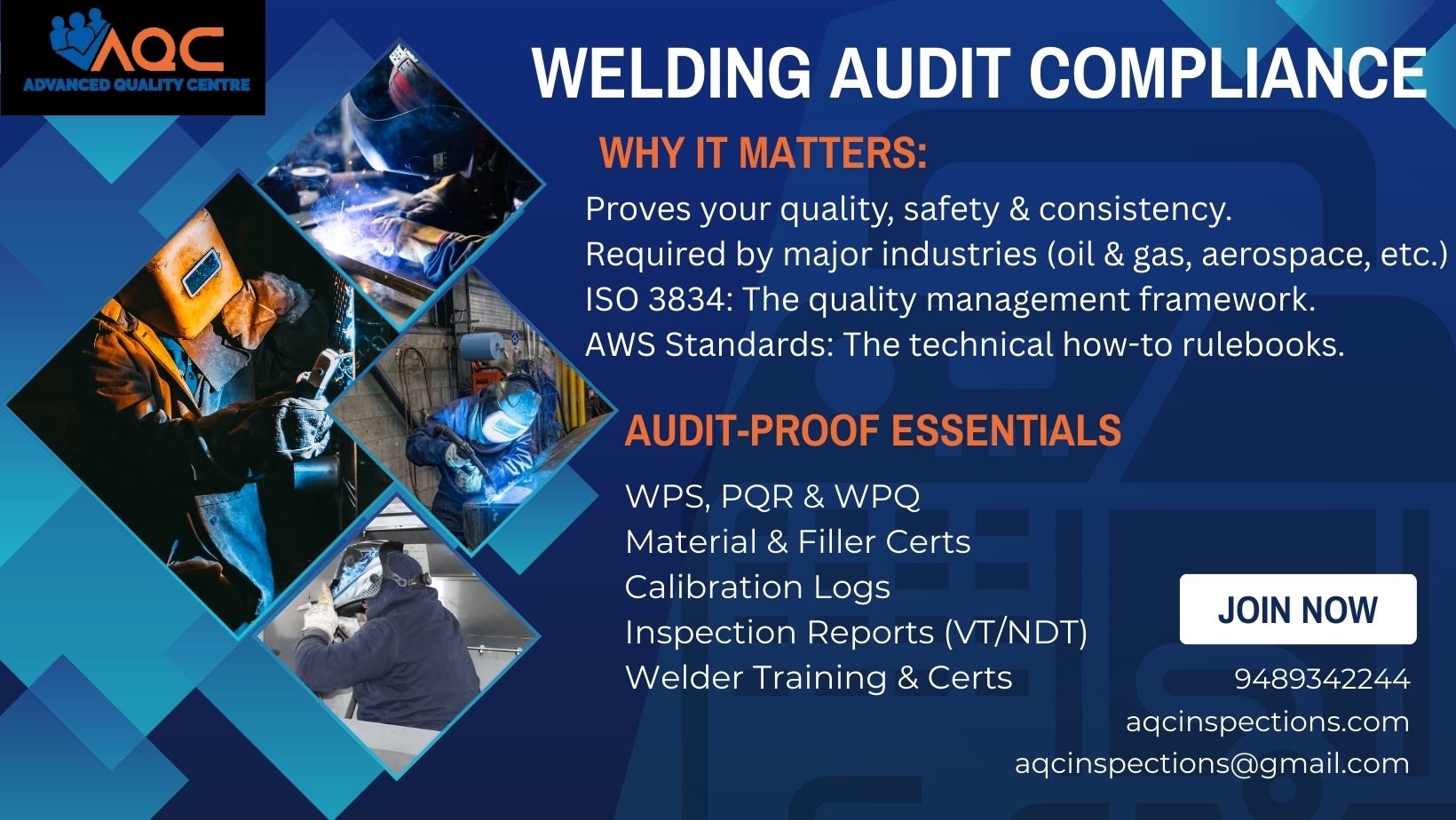Introduction
Welding is a critical process in industries like manufacturing, construction, and automotive. Selecting the right welding process and consumables plays a vital role in ensuring the strength, durability, and efficiency of welded joints. At AQC – Advanced Quality Centre, we specialize in providing expert guidance on welding techniques, material compatibility, and consumable selection to enhance productivity and quality.
Factors to Consider in Welding Process Selection
Choosing the right welding method depends on various factors, including:
-
Material Type:
Different metals require specific welding techniques. For example:
Mild Steel & Carbon Steel – MIG, TIG, or Stick welding
Stainless Steel – TIG welding for precision and corrosion resistance
Aluminum & Non-Ferrous Metals – TIG or MIG welding with specialized shielding gases
-
Welding Position:
Some processes are better suited for overhead, vertical, or flat positions. For example, Shielded Metal Arc Welding (SMAW) is ideal for outdoor work in any position.
-
Joint Design:
The shape and thickness of the joint influence whether to use Gas Metal Arc Welding (GMAW), Flux-Cored Arc Welding (FCAW), or Submerged Arc Welding (SAW).
-
Production Speed & Cost Efficiency:
Automated processes like laser welding or robotic MIG welding are ideal for high-production environments, whereas manual TIG welding is best for precision work.
-
Work Environment & Accessibility:
If the work is done outdoors or in challenging environments, SMAW (Stick Welding) or FCAW (Flux Core Arc Welding) is preferred due to their tolerance to wind and dirt.
Types of Welding Processes
The most commonly used welding techniques include:
- MIG Welding (GMAW): Ideal for fast production and general fabrication.
- TIG Welding (GTAW): Provides high-quality, clean welds for thin materials.
- Stick Welding (SMAW): Cost-effective and suitable for outdoor applications.
- Flux-Cored Welding (FCAW): Great for heavy fabrication and structural welding.
- Submerged Arc Welding (SAW): Used for large-scale industrial welding.
- Laser Welding & Plasma Welding: Advanced options for high-precision applications.
Choosing the Right Welding Consumables
The right electrodes, wires, and shielding gases ensure strong and defect-free welds. Some important considerations include:
- Electrodes & Filler Materials
- Mild Steel: Use E6010, E6013, or E7018 electrodes for stick welding.
- Stainless Steel: Use ER308L or ER309L filler wires for TIG/MIG welding.
- Aluminum: Use ER4045 or ER5356 wires for MIG/TIG welding.
- Shielding Gases
- MIG Welding: CO₂ or Argon-CO₂ mix for steel, pure Argon for aluminum.
- TIG Welding: 100% Argon or Argon-Helium mix for deeper penetration.
- Flux-Cored Welding: No shielding gas required for self-shielded wires.
- Flux & Coatings
- Basic-coated electrodes provide deep penetration and strength.
- Cellulose-coated rods are good for pipe welding and high-strength joints.
Conclusion
Selecting the right welding process and consumables is crucial for achieving high-quality welds. At AQC – Advanced Quality Centre, we provide expert consultation and high-performance welding materials tailored to your project needs. Contact us today for professional guidance on welding solutions!
FOR MORE INFORMATION AND TRAINING:
- Contact ADVANCED QUALITY CENTRE (AQC)
- Mail ID : [email protected]
- Contact: 8668082413
- Visit as : https://aqcinspection.com/
- Address: 100 ft road, Gandhipuram, Coimbatore.
Visit our technical and career updates at our Blog site https://advancedqualitycentre.blogspot.com . or
https://ndtcenter.blogspot.com
Subscribe our youtube channel to know more practical explanations https://aqcinspection.com/




